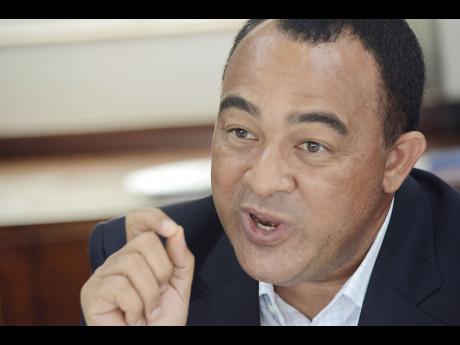HIV/AIDS partners pleased with Jamaica's fight against disease, urge continuance
Several groups represented at the annual World AIDS Day breakfast forum, held at the Mona Visitors' Lodge and Conference Centre on the Mona campus of the University of the West Indies in Kingston, have expressed satisfaction with the progress Jamaica has made in its fight against HIV-AIDS.
Dr Nkhensani Mathabathe, country director of the joint United Nations Programme on HIV-AIDS (UNAIDS), hailed Jamaica for pressing on, but she noted that there was much work still to be done if the ambitious goal of ending the epidemic by 2030 is to be realised.
She said the UN was committed to the country and wanted to further collaborate with the health ministry and other partners in the fight against HIV and AIDS.
Health Minister Dr Christopher Tufton, who was in attendance at the function, responded by giving the assurance that the Government, too, was committed in the fight against the disease, noting also that Jamaica has made significant strides.
He said HIV-AIDS is a critical issue for the Jamaican society and his ministry endorses any attempt to coordinate and cooperate in the fight against the disease.
Tufton said that though strides are being made, Jamaica's prevalence rate stood at 1.6 per cent.
DECREASE IN AIDS DEATHS
Jamaica has seen a decrease in AIDS-related deaths between 2004 and 2011 with the numbers tumbling by a whopping 65 per cent.
The minister did not take comfort in what seemed to be impressive figures, but, instead, pointed out that there is need for much more to be done in relation to the fight.
"We are committed to having a multi-stakeholder approach that embraces the concept of non-discrimination," Tufton said.
The function was organised by the Jamaica AIDS Support for Life in collaboration with the Ministry of Health, J-FLAG, Caribbean Vulnerable Communities Coalition, and several UN organisations.
Statistics show that between January 1982 and December 2014, some 33,193 cases of HIV were reported to the Ministry of Health and just over 9,200 or 28 per cent of the patients are known to have passed on.
According to the World Health Organization, at the end of 2015 there was about 36.7 million people living with HIV.

